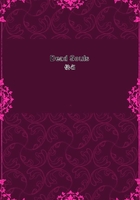
第18章
"And what of the Chief of Police? Is it not a fact that he too is in the highest degree agreeable?""Very agreeable indeed. And what a clever, well-read individual! With him and the Public Prosecutor and the President of the Local Council Iplayed whist until the cocks uttered their last morning crow. He is a most excellent fellow.""And what of his wife?" queried Madame Manilov. "Is she not a most gracious personality?""One of the best among my limited acquaintance," agreed Chichikov.
Nor were the President of the Local Council and the Postmaster overlooked; until the company had run through the whole list of urban officials. And in every case those officials appeared to be persons of the highest possible merit.
"Do you devote your time entirely to your estate?" asked Chichikov, in his turn.
"Well, most of it," replied Manilov; "though also we pay occasional visits to the town, in order that we may mingle with a little well-bred society. One grows a trifle rusty if one lives for ever in retirement.""Quite so," agreed Chichikov.
"Yes, quite so," capped Manilov. "At the same time, it would be a different matter if the neighbourhood were a GOOD one--if, for example, one had a friend with whom one could discuss manners and polite deportment, or engage in some branch of science, and so stimulate one's wits. For that sort of thing gives one's intellect an airing. It, it--" At a loss for further words, he ended by remarking that his feelings were apt to carry him away; after which he continued with a gesture: "What I mean is that, were that sort of thing possible, I, for one, could find the country and an isolated life possessed of great attractions. But, as matters stand, such a thing is NOT possible. All that I can manage to do is, occasionally, to read a little of A Son of the Fatherland."With these sentiments Chichikov expressed entire agreement: adding that nothing could be more delightful than to lead a solitary life in which there should be comprised only the sweet contemplation of nature and the intermittent perusal of a book.
"Nay, but even THAT were worth nothing had not one a friend with whom to share one's life," remarked Manilov.
"True, true," agreed Chichikov. "Without a friend, what are all the treasures in the world? 'Possess not money,' a wise man has said, 'but rather good friends to whom to turn in case of need.'""Yes, Paul Ivanovitch," said Manilov with a glance not merely sweet, but positively luscious--a glance akin to the mixture which even clever physicians have to render palatable before they can induce a hesitant patient to take it. "Consequently you may imagine what happiness--what PERFECT happiness, so to speak--the present occasion has brought me, seeing that I am permitted to converse with you and to enjoy your conversation.""But WHAT of my conversation?" replied Chichikov. "I am an insignificant individual, and, beyond that, nothing.""Oh, Paul Ivanovitch!" cried the other. "Permit me to be frank, and to say that I would give half my property to possess even a PORTION of the talents which you possess.""On the contrary, I should consider it the highest honour in the world if--"The lengths to which this mutual outpouring of soul would have proceeded had not a servant entered to announce luncheon must remain a mystery.
"I humbly invite you to join us at table," said Manilov. "Also, you will pardon us for the fact that we cannot provide a banquet such as is to be obtained in our metropolitan cities? We partake of simple fare, according to Russian custom--we confine ourselves to shtchi[3], but we do so with a single heart. Come, I humbly beg of you."[3] Cabbage soup.
After another contest for the honour of yielding precedence, Chichikov succeeded in making his way (in zigzag fashion) to the dining-room, where they found awaiting them a couple of youngsters. These were Manilov's sons, and boys of the age which admits of their presence at table, but necessitates the continued use of high chairs. Beside them was their tutor, who bowed politely and smiled; after which the hostess took her seat before her soup plate, and the guest of honour found himself esconsed between her and the master of the house, while the servant tied up the boys' necks in bibs.
"What charming children!" said Chichikov as he gazed at the pair. "And how old are they?""The eldest is eight," replied Manilov, "and the younger one attained the age of six yesterday.""Themistocleus," went on the father, turning to his first-born, who was engaged in striving to free his chin from the bib with which the footman had encircled it. On hearing this distinctly Greek name (to which, for some unknown reason, Manilov always appended the termination "eus"), Chichikov raised his eyebrows a little, but hastened, the next moment, to restore his face to a more befitting expression.
"Themistocleus," repeated the father, "tell me which is the finest city in France."Upon this the tutor concentrated his attention upon Themistocleus, and appeared to be trying hard to catch his eye. Only when Themistocleus had muttered "Paris" did the preceptor grow calmer, and nod his head.
"And which is the finest city in Russia?" continued Manilov.
Again the tutor's attitude became wholly one of concentration.
"St. Petersburg," replied Themistocleus.
"And what other city?"
"Moscow," responded the boy.